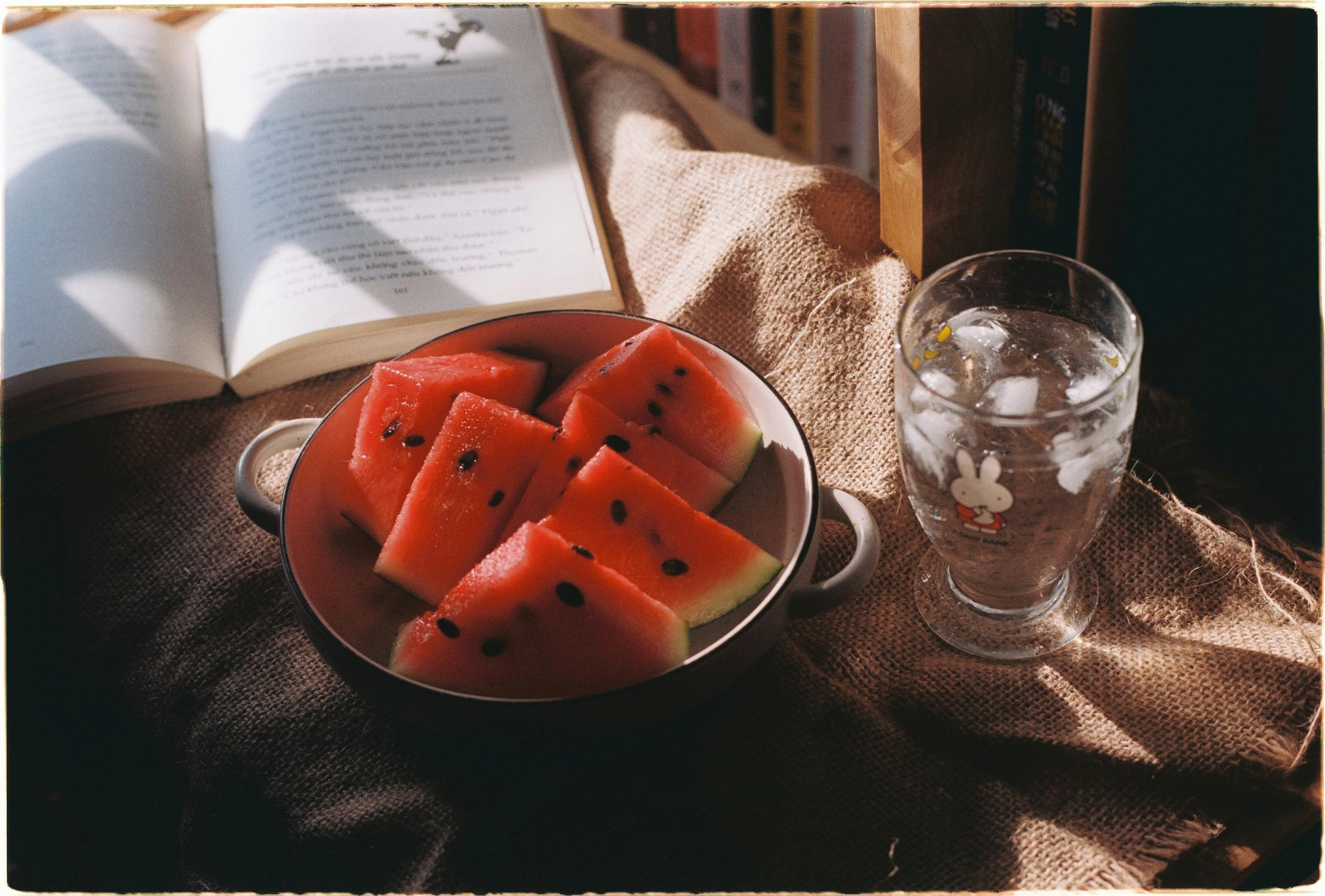Fruit water is a refreshing and healthy alternative to sugary drinks, and it can be enjoyed both hot or cold. But how long does fruit water last? This article will provide an overview of the shelf life of fruit water, as well as some tips on how to store it properly so that you can enjoy the most out of your delicious beverage.Fruit water typically lasts for 1-2 days when stored in the refrigerator. To keep it fresh for longer, it is best to make small batches and store them in airtight containers.
Fruit Water
Fruit water is a type of beverage made with real fruits and water. It contains no added sugar, artificial sweeteners, or preservatives and has a very light, refreshing taste. Unlike other flavored waters, it has a very subtle flavor without any overpowering sweetness. It is an ideal beverage for those looking to cut down on their sugar intake, as it provides a much healthier alternative to sugary drinks. Additionally, many fruit waters are fortified with vitamins and minerals to provide additional nutritional benefits.
Fruit water can be made at home by simply adding fresh or frozen fruit to cold water and letting it sit for several hours in the refrigerator. This allows the flavors of the fruit to infuse into the water, creating a delicious and refreshing beverage. Alternatively, there are also many commercially available fruit waters that contain natural flavors and colors derived from real fruits.
Fruit water is becoming increasingly popular amongst health-conscious individuals as it provides an easy way to stay hydrated without sacrificing taste or nutrition. Additionally, its light flavor makes it easier to drink than plain water, especially for those who do not enjoy the taste of plain water. By replacing sugary drinks with this healthy alternative, individuals can reduce their calorie intake while still enjoying flavorful beverages throughout the day.
The Benefits of Drinking Fruit Water
Drinking fruit water is a great way to stay hydrated and get your daily intake of vitamins and minerals. It also offers some other health benefits, such as improved digestion, increased energy, enhanced immunity, and reduced bloating. Additionally, it can help with weight loss as it is low in calories and can be used as a substitute for sugary drinks. As an added bonus, it tastes delicious and can be made with a variety of different fruits.
Fruit water is packed with essential vitamins and minerals that help boost your overall health. Vitamin C helps strengthen the immune system while vitamin B helps the body metabolize food more efficiently. Potassium helps maintain healthy blood pressure levels while magnesium helps regulate muscle function. Additionally, antioxidants found in fruits have been proven to protect against free radical damage caused by environmental toxins.
Drinking fruit water can also help improve digestion. The fiber found in the fruits helps move food through the digestive tract more quickly so that it can be absorbed more effectively. This can reduce symptoms such as bloating, cramping, gas, and constipation. Additionally, the natural sugars found in fruit water help to balance blood sugar levels so that you don’t experience sudden drops or spikes in energy levels.
Fruit water is also beneficial for weight loss as it is low in calories but high in nutrition. It can be used as a substitute for sugary drinks that are often loaded with empty calories and unhealthy additives. Drinking a glass of fruit water after meals will help you feel fuller longer so that you won’t be tempted to overeat or snack on unhealthy foods throughout the day.
In conclusion, drinking fruit water is a great way to stay hydrated while getting your daily intake of essential vitamins and minerals. It also offers other benefits such as improved digestion, increased energy levels, enhanced immunity, reduced bloating, and weight loss support. Plus it tastes delicious too!
Factors that Affect the Shelf Life of Fruit Water
Fruit water is a delicious and refreshing beverage made by blending fresh fruit with water. It can be enjoyed cold or hot, depending on your preference. Unfortunately, it has a relatively short shelf life due to the delicate nature of the ingredients. In order to maximize its shelf life, it is important to understand the factors that affect its longevity.
The first factor that affects the shelf life of fruit water is temperature. If stored in too warm of an environment, it can spoil quickly, leading to a sour taste that is unpleasant and potentially dangerous if consumed. On the other hand, if stored in too cold of an environment, it can freeze and become slushy or icy instead of liquid. The ideal temperature for storing fruit water is between 35-45 degrees Fahrenheit for maximum shelf life.
The second factor that affects the shelf life of fruit water is exposure to air and light. Oxygen in the air can cause oxidation, which will break down some of the beneficial nutrients found in fruits and cause them to spoil faster. Similarly, exposure to light can also reduce its shelf life as light will cause some compounds in fruits to disintegrate over time.
Finally, another factor that affects the shelf life of fruit water is how well it is sealed before storage. If stored in an airtight container or bottle with a tight lid, it will stay fresh for longer than if stored without a lid or loosely sealed container. This will help prevent oxygen from entering and causing oxidation as well as prevent light from entering and breaking down beneficial compounds.
In conclusion, there are several factors that affect the shelf life of fruit water including temperature, exposure to air and light, and how well it is sealed before storage. By understanding these factors and taking appropriate measures to store fruit water properly, you can ensure maximum freshness for as long as possible!
Storage Tips to Make Fruit Water Last Longer
Fruit-infused water is a popular and delicious way to stay hydrated, but making sure that it lasts longer requires proper storage techniques. Here are some tips on how to store your fruit water to make it last longer:
First, make sure you are using the right container. Clear containers are best because they allow you to see what is inside and check for any signs of spoilage. Avoid using plastic containers as they can leach chemicals into your water. Glass or stainless steel containers are ideal.
Second, keep your containers in a cool, dark place such as the refrigerator. This will help prevent the fruit from spoiling as quickly. You can also use ice packs or freeze the fruit-infused water if you want it to last even longer.
Third, only infuse your water with fresh fruit. If you are using frozen fruit, be sure to thaw it before adding it to the water. Also, avoid over-infusing your water with too much fruit as this can cause it to spoil more quickly.
Fourth, use filtered or distilled water when making your fruit-infused beverages. Tap water can contain contaminants that will shorten the life span of your beverage. Filtered or distilled water will ensure that your drink stays fresh for longer.
Finally, if you’re not going to consume all of the fruit-infused water in one sitting, make sure you store it properly after each use by sealing the container tightly and refrigerating it until ready for consumption again. This will help keep your beverage fresh for much longer periods of time.
By following these simple storage tips, you can ensure that your delicious and nutritious fruit-infused waters last longer so that you can enjoy them at any time!

How Can You Tell if Your Fruit Water is Spoiled?
Fruit water is an incredibly refreshing and healthy drink option. Unfortunately, like any other food item, it can spoil over time. Knowing how to tell if your fruit water has gone bad is important to ensure that you don’t consume anything that may make you ill. Here are some signs to look out for that may indicate your fruit water has spoiled:
The first thing to look out for is any changes in color or odor. If the liquid has changed color or developed an off-putting smell, it’s best to discard it. Even if there are no visible changes, a strange or sour smell can be an indication that the fruit water has gone bad.
Another thing to watch out for is any mold or discoloration on the fruits themselves. If you spot any of these signs, then it’s likely the fruit water has gone bad and should be thrown away immediately.
Finally, you can also check for changes in taste. If the fruit water tastes different from when you first prepared it then it may have gone bad and should be discarded.
It’s important to keep in mind that even if none of these indicators are present, it doesn’t necessarily mean that the fruit water is safe to drink – bacteria can still grow even if you can’t see or smell anything strange. If in doubt, it’s always best to err on the side of caution and throw away any suspicious-looking fruit water.
How to Dispose of Bad Fruit Water
Fruit water is a delicious and healthy way to hydrate, but occasionally a batch can go bad. When this happens, it’s important to dispose of the bad fruit water properly so that it does not contaminate the environment or spread bacteria. Here are some tips for disposing of bad fruit water safely and responsibly.
The first step in disposing of bad fruit water is to pour it down the drain with hot water. This will help to flush out any bacteria that may be present in the fruit water. Make sure you do not pour any solids down the drain as these could cause clogs and other plumbing problems.
Another option is to compost your bad fruit water in an outdoor compost bin. This can help break down the bacteria and reduce its impact on the environment. Make sure your compost bin is far away from areas where people or animals may come into contact with it, such as near a playground or garden.
You can also dispose of your bad fruit water by pouring it onto soil or grassy areas away from people and animals. This will help break down the bacteria and reduce its impact on the environment. However, be sure to avoid pouring it directly onto plants as this can cause them harm.
Finally, if you have a large amount of bad fruit water, you may want to contact your local waste management company for assistance with disposal. They may be able to pick up and properly dispose of your old fruit water for you.
By following these tips, you can make sure that all of your old fruit water is disposed of safely and responsibly so that it doesn’t end up contaminating the environment or spreading dangerous bacteria.
Alternatives to Drinking Fruit Water
Herbal teas are a great alternative to drinking fruit water. Herbal teas can provide a wide variety of flavors, ranging from fruity and sweet to earthy and spicy. Additionally, herbal teas have many health benefits, such as aiding digestion, boosting the immune system, and even helping with weight-loss. Most herbal teas are caffeine-free, so they can be enjoyed at any time of day.
Another healthy alternative to drinking fruit water is coconut water. Coconut water is naturally low in calories and sugar, and is packed with electrolytes like potassium and magnesium. It also has a naturally sweet flavor that makes it an enjoyable beverage choice. Coconut water can be consumed on its own or added to smoothies for an extra boost of flavor and hydration.
Smoothies are another great way to stay hydrated without drinking fruit water. Smoothies are easy to make at home using fresh ingredients like fruits and vegetables. You can customize your smoothie with a variety of add-ins like protein powder or nut butter for an extra boost of nutrition. Smoothies are also a great way to get in your daily servings of fruits and vegetables.
Finally, plain old water is always a great option for staying hydrated. Plain water doesn’t have any additional sugar or calories like fruit waters do, so it’s the perfect option for those who want to stay hydrated without consuming extra calories or sugar. Additionally, adding some citrus slices or herbs can give plain water a boost of flavor without adding any additional calories or sugar.

Conclusion
Fruit water is a great way to stay hydrated and get a refreshing, fruity boost of vitamins and minerals. It’s easy to make and can last up to three days if stored in the refrigerator. The best way to ensure your fruit water stays fresh for as long as possible is to use fresh, ripe fruit and store the mixture in a sealed container.
When it comes to consuming fruit water, it’s best consumed within 12 hours of making it. After that, the flavor may start to degrade and the vitamins will begin to dissipate. If you don’t think you’ll finish your fruit water in one day, it’s best to portion out what you need for each day and store the rest in the fridge.
Overall, fruit water is an enjoyable way to enjoy natural hydration with a hint of flavor. With proper preparation and storage, you can make sure your fruit water lasts as long as possible so you can enjoy it every day!



